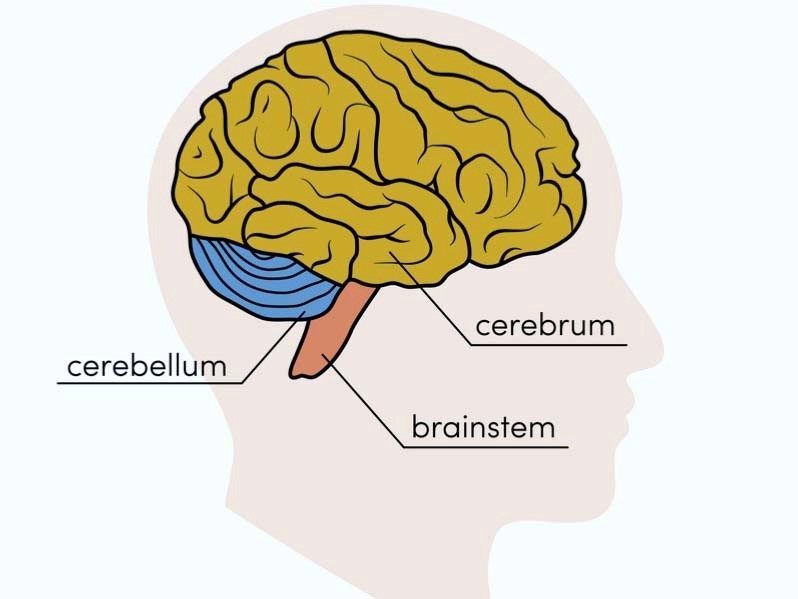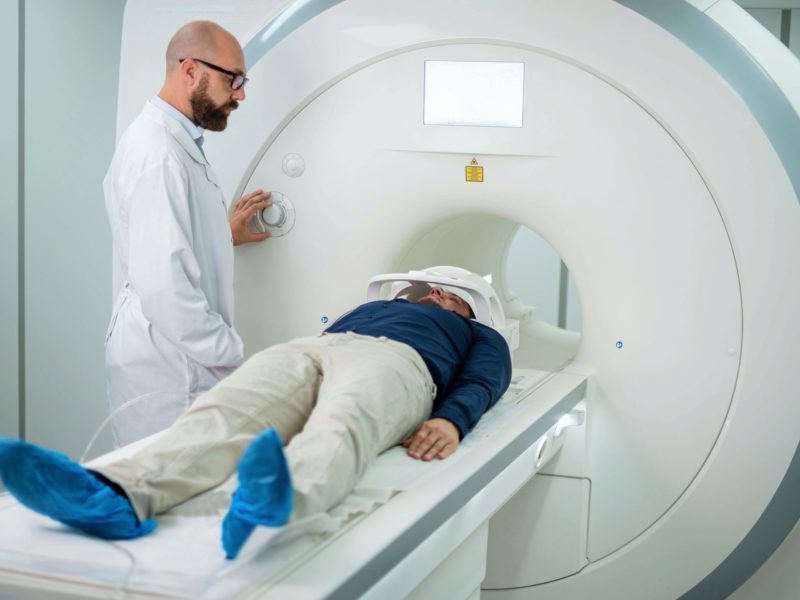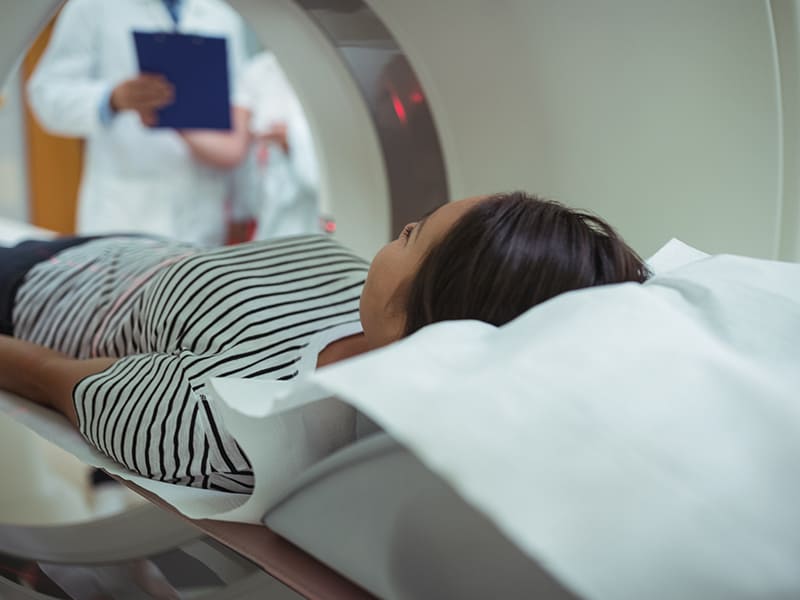Attending a brain MRI in London may seem daunting and understandably you may be nervous, but rest assured there is nothing to fear. A brain MRI is a safe, non-invasive and a common procedure which can save lives because, as with all health issues, early detection is key. In fact, it is so common, that approximately 3.5 million MRI scans are performed each year by the NHS.
Nevertheless, it is understandable that you may still have concerns so in this post we aim to explore everything you need to know about having a brain MRI in London.
What is a brain MRI?
An MRI (magnetic resonance imaging) scan is a medical imaging technique that enables multiple cross-sectional images to be taken of a body part, in this case the brain. An MRI machine is essentially a long tube in which you lie and which uses strong magnetic fields and radio waves to create these images before they are interpreted by a specialist radiologist.
How does an MRI work?
An MRI scanner is a long tube, inside which extremely powerful magnets spin round to create a strong magnetic field – over 30,000 times stronger than the Earth’s own magnetic field.
The human body is approximately 60% water (H20), and water molecules react to magnetic fields. Each molecule of H20 has two small hydrogen atoms, at the centre of which is a single proton. Under the influence of a strong magnetic field the protons rotate on their axes to line up in the same direction.
This means that in an MRI, all the protons in the body line up in the same direction. As protons are positively charged this simultaneous alignment causes the body to, in effect, become magnetic.
The MRI machine then sends short bursts of radio waves to the area of the body being imaged, in this case the brain, which knocks the protons out of alignment. When the protons realign under the magnetic field, they in turn send out radio waves which are picked up by receivers, allowing a computer to construct detailed images of that body part.
Echelon Health has access to a 3 Tesla MRI machine, of which there are just a handful in London due to their expense and complexity. This is twice the strength of those the NHS generally operates, which are 1.5 Tesla, and produces clearer, higher resolution images which are ideal for detecting a range of conditions.
What a brain MRI scan looks at

The brain is hugely intricate but from an imaging perspective it can be divided into a few distinct regions. These are the regions that specialist neuroradiologists will pay most attention to during a brain MRI.
Cerebrum – a large portion of the brain with smaller structures that regulate core functions such as touch, vision, hearing, speech as well as problem-solving, learning, reasoning, emotions, and movement
Brainstem – a smaller region responsible for conducting information from the rest of the brain to the body and vice versa, controlling the cardiovascular system, pain sensitivity, involuntary movement, hunger and is also important for consciousness.
Cerebellum – at the back and bottom of the brain, it is important for coordinating movement including eye movement, maintaining balance, motor learning, as well as processing language and regulating mood.
Ventricles – structures that produce cerebrospinal fluid, and transport it around the cranial cavity and spinal cord.
Pituitary gland – a small pea-sized gland at the base of the brain that works with the hypothalamus beneath it to secrete hormones important for growth, metabolism, reproduction and blood pressure amongst other functions.
A brain MRI is essentially a head MRI so it will also image the sinuses and inner ears.
What can a brain MRI detect?
- Brain tumours – a mass of tissue, which may originate from nerve, fat or lining of the brain. According to the NHS, half of primary tumours diagnosed in the UK are benign. Interestingly, 1 in 5 people can have a pituitary tumour but don’t know it because again, they are usually benign, very small sized and harmless. Fortunately, Echelon Health’s expert radiologists know what does and doesn’t require further investigation.
- Swelling – usually following an injury to the head or a chronic inflammatory condition
- Structural abnormalities – such as those associated with multiple sclerosis, Alzheimer’s disease or developmental abnormalities
- Damage to blood vessels –aneurysms are bulging blood vessels and anterio-venous malformations are abnormalities of the brain blood vessels. Both can increase the risk of potentially catastrophic brain haemorrhage.
- Problems with blood flow – this can cause a condition called vascular dementia which is increasingly common as we get older.
- Cysts – fluid-filled sacs that are usually non-cancerous. They may over time press on surrounding brain tissue and cause symptoms.
- Sinus abnormalities – such as polyps or sinus infections.
The following can also be imaged by an MRI, however you are highly unlikely to have them if you are asymptomatic. These require urgent medical attention:
- Infections – such as a brain abscess
- Bleed on the brain – following head injury or stroke
This list may sound concerning, but rest assured that all these conditions are relatively rare and when caught early, most can be treated or managed with a promising outlook.
Why you might need a brain MRI scan
It is advisable to have a brain MRI scan if you have a higher risk for abnormalities. This may be due to:
- Risk factors for stroke including high cholesterol levels, high blood pressure, diabetes, or being a smoker
- A history of head injuries – e.g. from boxing
- A family history of strokes, brain tumours or chronic conditions like MS or dementia
- Mild on-going symptoms such as frequent headaches, nosebleeds, dizziness, weakness, unusual mood changes, blurry vision or seizures.
In general, the NHS will only order a brain MRI if deemed a necessity, i.e. when a person has symptoms relating to a possible disease in the brain. However, imaging also allows doctors to detect abnormalities before the patient is symptomatic. In fact there is a widely held consensus that early detection of disease leads to better outcomes and MRIs are especially safe because there is no ionising radiation to worry about.

Examples of brain abnormalities diagnosed using MRI
“The bottom line is that I was diagnosed with a cerebral fistula in my brain, a condition from which I was suffering no symptoms and would have been completely undetectable in a normal medical” Nick Finegold, CEO, Curation Corp
Echelon Heath detected a large cerebral fistula in client Nick’s brain when he attended for a full health check-up. He was immediately referred to one of the best specialists in the country and successfully operated on a few days later, preventing a potentially life-ending brain haemorrhage.
Again, prevention really is better than cure.
Is a brain MRI safe?
Yes, it is very safe. MRIs do not use ionising radiation which means the radiation dose from CT scans and X-Rays, which is still very small, is none-existent with MRI scans.
Occasionally, your MRI will require the use of contrast dye, such as Gadolinium contrast medium. Very rarely this can cause an allergic reaction and also kidney damage in those who already have abnormal kidney function. Gadolinium will only be used if considered essential and you will be given further advice/ consent before this.

How to prepare for a brain MRI
Before the MRI in London is performed, everything metallic must be removed, including jewellery and hair clips. There are several rare but important circumstances that would prevent the use of a magnetic field and in which case an MRI could become dangerous. These include having a metal-based implant such as a pacemaker, artificial heart valve, metal plate or pin, a copper IUD, cochlear implant, previous gunshot wound or permanent (tattoo) eyeliner.
MRI scans are not usually recommended for pregnant women in their first trimester but after this they are considered safe. There are no known harmful effects on to the foetus in any event but this is still a precautionary measure.
Some people are claustrophobic and may be anxious about having an MRI. However, you are in very safe hands and have plenty of chance to relax and prepare yourself in Echelon’s beautiful Client lounge.
What to expect on your day at Echelon Health
A brain MRI in London is one of many scans included in our Platinum Health Assessment. To view a schedule of your day at Echelon, click here
Request a call back
Sources
Insider Radiology – Gadolinium contrast medium
Imaging Technology News – MRI brain with and without contrast



